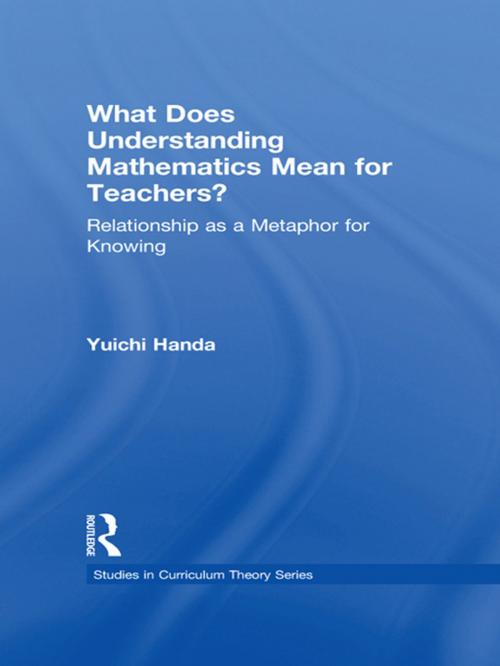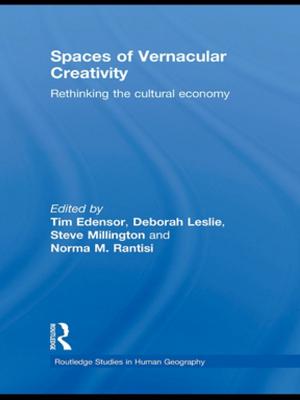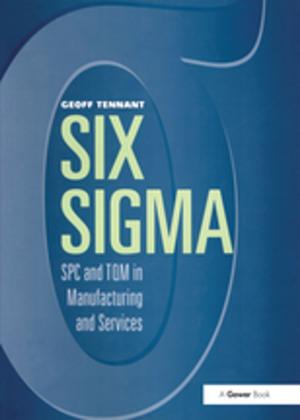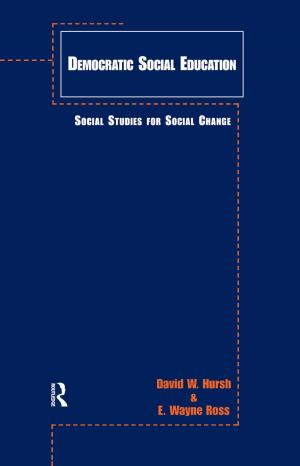What Does Understanding Mathematics Mean for Teachers?
Relationship as a Metaphor for Knowing
Nonfiction, Reference & Language, Education & Teaching, Educational Theory, Curricula, Teaching, Teaching Methods| Author: | Yuichi Handa | ISBN: | 9781136870521 |
| Publisher: | Taylor and Francis | Publication: | May 13, 2013 |
| Imprint: | Routledge | Language: | English |
| Author: | Yuichi Handa |
| ISBN: | 9781136870521 |
| Publisher: | Taylor and Francis |
| Publication: | May 13, 2013 |
| Imprint: | Routledge |
| Language: | English |
This book opens up alternative ways of thinking and talking about ways in which a person can "know" a subject (in this case, mathematics), leading to a reconsideration of what it may mean to be a teacher of that subject.
In a number of European languages, a distinction is made in ways of knowing that in the English language is collapsed into the singular word know. In French, for example, to know in the savoir sense is to know things, facts, names, how and why things work, and so on, whereas to know in the connaître sense is to know a person, a place, or even a thing—namely, an other— in such a way that one is familiar with, or in relationship with this other. Primarily through phenomenological reflection with a touch of empirical input, this book fleshes out an image for what a person’s connaître knowing of mathematics might mean, turning to mathematics teachers and teacher educators to help clarify this image.
This book opens up alternative ways of thinking and talking about ways in which a person can "know" a subject (in this case, mathematics), leading to a reconsideration of what it may mean to be a teacher of that subject.
In a number of European languages, a distinction is made in ways of knowing that in the English language is collapsed into the singular word know. In French, for example, to know in the savoir sense is to know things, facts, names, how and why things work, and so on, whereas to know in the connaître sense is to know a person, a place, or even a thing—namely, an other— in such a way that one is familiar with, or in relationship with this other. Primarily through phenomenological reflection with a touch of empirical input, this book fleshes out an image for what a person’s connaître knowing of mathematics might mean, turning to mathematics teachers and teacher educators to help clarify this image.















